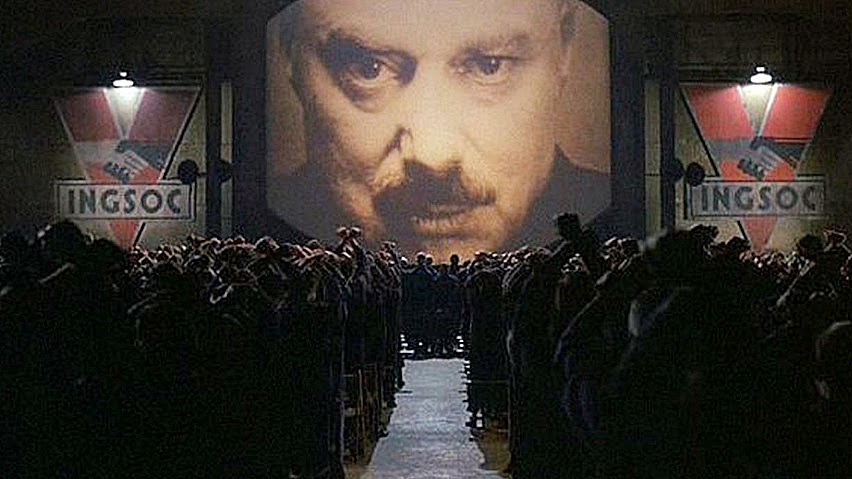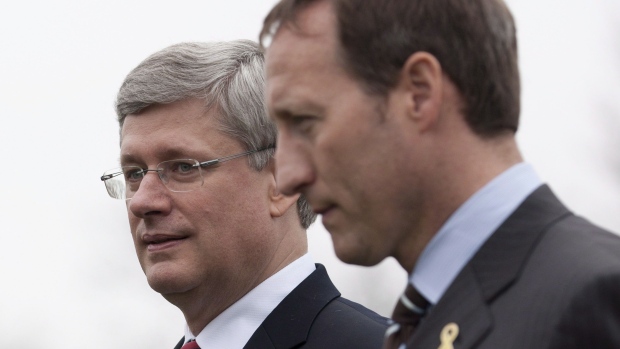
The Harper government is monitoring your online activities
Privacy experts believe government spying via social media may be in violation of the Privacy Act. As you scroll through your Facebook’s news-feed to find people you knew in High School are now having children, comments on the latest in Entertainment and the slew of personal statuses shared to a group of people considered to be friends, note that Big Brother virtually lurks over your shoulders and agents at CSEC are paid to see what you see.
A report from Privacy Commissioner Chantal Bernier reveals the federal government is data-mining your Facebook and Twitter feeds, possibly with the help of Telecom.
Treasury Board Minister Tony Clement defended the invasion of privacy saying it is fair “in a day and age when Canadians willingly put information about their opinions” online. He added it allows government officials to “engage in conversations with Canadians.” If the Government of Canada is so willing to engage in conversations with Canadians, perhaps it is time for them to start consulting Canadians on the policies they write, rather than use their majority to try to ram incredibly inconceivable legislation like the recent Fair Elections Act through the legislative process.
Avner Levin, Director of the Privacy and Cyber Crime Institute at Ryerson University, argues the Conservative government’s spying actions “[is] a breach of the spirit of the Privacy Act.”
The act currently dictates that governments can only collect data that “relates directly to an operating program or activity of the institution.” In addition, the government “must inform the individual of the purpose” of collecting said data, with some exceptions.
Levin goes on to question the purpose of collecting this information, asking how it will be used – questions that remain unanswered.
“Our government, as a liberal democracy, has to justify why it’s collecting any kind of information [on the public],” Levin said. “In a rule-of-law system, they have to answer for why they would be creating databases like that. What’s the point? How are they going to be using it?”
Christopher Parsons also thinks government snooping is violating the Privacy Act. As a post-doctoral fellow at the University of Toronto’s Citizen lab focusing on human rights, IT and global security research, he said, “This is information that’s been collected without Canadians knowing, and as the privacy commissioner noted, without clear reason. This government is saying they should be able to access public information just like anybody else, but that confuses how Canadian law works.”
It is no secret the current Conservative government is obsessed with Big Brother. Communications Security Establishment Canada (CSEC), was authorized by a ministerial directive on November 21, 2011, signed by then-Defense Minister Peter MacKay to start monitoring and storing personal information of Canadians while keeping them all in the dark. This ministerial directive kept MacKay from having to present it to the House of Commons which would have given him scrutiny.
Government spying is a touchy issue in Canadian politics and it cost former Public Safety Minister Vic Toews his credibility. In February 2012 the Conservatives introduced a number of bills meant to legitimize government spying activities.
The first one, Bill C51 would have allowed the police to access and monitor people’s online activities without a warrant. Without surprise, the bill faced scrutiny but Toews made the headlines for his response to Liberal MP Francis Scarpaleggia, who said the Conservative government was “preparing to read Canadians’ emails and track their movements through cellphone signals, in both cases without a warrant.”
Toews committed a logical fallacy and angered Canadians after responding, “he can either stand with us or with the child pornographers.”
Then-Privacy Commissioner Jennifer Stoddart questioned the necessity for the legislation much in the way critics are questioning the government’s actions today.
“Canadian authorities have yet to provide the public with evidence to suggest that CSIS or Canadian police cannot perform their duties under the current regime,” she said.
“If the concern of law enforcement agencies is that it is difficult to obtain warrants or judicial authorization in a timely way, these administrative challenges should be addressed by administrative solutions rather than by weakening long-standing legal principles that uphold Canadians’ fundamental freedoms.”
The bill eventually got renamed to Bill C30 and the criticism continued. The legislation as it stood was unconstitutional and violated section 8 which reads “Everyone has the right to be secure against unreasonable search or seizure.”
As the Conservatives expected Canadians to willingly open their hearts to government surveillance resembling the outcome of George Orwell’s hit 1984, Toews’s hypocrisy took centre stage. The legislation to allow government surveillance masked under the title: Protecting Children from Internet Predators Act lead to the a @vikileaks30 twitter account which exposed much of Toews’s ugly divorce. A group of anonymous vigilantes which call themselves Anonymous also took aim at Toews releasing even more embarrassing information about his divorce. Toews got what was coming to him and got a taste of his own medicine and while he insisted on shoving it down Canadians’ throats, he personally replied to the symbolic protests saying, “Now what bothers me is not so much the content of the attacks against me but that there may be members of Parliament or a caucus that is hiding behind the anonymity of government resources to attack me personally.”
The legislation was killed a year later, but little did Canadians know the bullet they dodged legislatively was watching them all along. Every conversation, every status, every phone call is being traced through metadata and stored by means of a secretive ministerial directive.
Privacy Commissioner Bernier revealed one example of a Canadian being monitored by this government: First Nations Activist Cindy Blackstock was tracked by the Department of Justice and Aboriginal Affairs and Northern Development.
In her report, Bernier wrote, “It turns out that the misconception that people surrender their right to privacy by posting on Facebook is unfortunately still breeding to some degree within government circles.”
To make matters worst, Canadians now have to rely on their Telecom companies to protect them from government surveillance. Bernier says these companies are refusing to say how many times they’ve given up personal information to the government without a warrant.
Bernier, meanwhile, would like the over 1.2 million requests for private information to be tracked in terms of statistics.
“I’m not disputing that there are times when there is no time to get a warrant — life is in danger,” Bernier said.
“What we would like is for those warrantless disclosures to simply be represented in statistics so that Canadians have an idea of the scope of the phenomenon.”
“We have tried many times. We have sought out information from the telecoms to find out,” she said. “They’ve given us very general comments.”
Bell, for example says if your personal information isn’t in their public 411 listing, they refuse to give it to the government. After receiving 170 complaints about the way Bell deals with customers’ information, Bernier has launched an investigation into Bell’s Privacy Policy.
The opposition didn’t remain silent about the government’s snooping.
NDP leader Thomas Mulcair charged, “It’s an abomination. This is a basic right in our society. Think of that as a proportion. How can that possibly be justified?”
Liberal leader Justin Trudeau said the many unanswered questions is “extremely disconcerting,” adding “How many times exactly did the government ask for personal information? What were they asking for? What did they receive? Why were they asking for this information? — these are all questions we have no answers to.”
The wave of legislation to legitimize the Conservatives’ surveillance agenda is still occurring. Liberal Justice Critic Sean Casey is taking issue with Bill S4 which would make “specific changes to the powers of the privacy commissioner,” and Bill C13 which would change “several provisions of the Criminal Code allowing for the obtaining of metadata and other information.” If there’s one thing we learned from the Fair Elections Act, it is that any change to the powers of an independent body are more likely to decrease than increase – especially before it is pressured to change.
Ron Deibert, director of the Citizen Lab at the University of Toronto told CBC’s The Lang & O’Leary Exchange, “So to what degree they share that information with government agencies, with the state, is I think the most important question for liberal democracy in the 21st century.”
He said that while people may claim they have nothing to hide and hence aren’t worried about government surveillance, it can lead to serious infringement on civil liberties down the road.
“If we don’t have proper oversight mechanisms to prevent the abuse of power, which is the situation we have today in Canada, we’ll never know whether that is going on.”
Perhaps the question of the matter is: Should the state be allowed to monitor the private online activity of its citizens in the modern age?
 Highlights
Highlights


